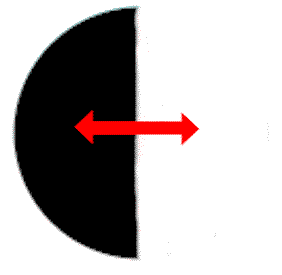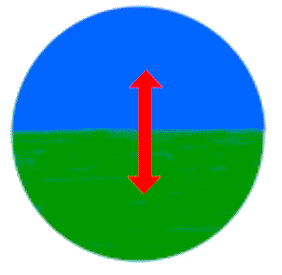
Both Eastern and Western philosophical traditions are strongly influenced by the ancient teaching - so ancient it cannot be ascribed to any one person or movement - known as "dualism". This states that matter, or even phenomena (those things we sense or are aware of in the world), are evil (or unreal), while "spirit" is good (or real). The descriptions vary, but the effect is the same: there are two states, or two realms, or two essences, or two concepts, or two somethings, and one is the opposite of the other, and is to be rejected - though in our daily experience it is the easier one to perceive and interact with. Hence the extreme emphasis of so many spiritual traditions on the inward journey rather than the outward journey; hence, also, their emphasis on the downward journey rather than the upward journey.
If the world, or matter, or the class of phenomena is declared to be either something evil to be despised or something unreal to be ignored, it is hardly surprising if no effort is made to alleviate the condition of the world. What would be the point?
Likewise, if the world (etc.) is to be denigrated, it will not also be celebrated.
However, we are fortunate in the West to have another strand of tradition (also of Eastern origin, as it happens): the Hebraic tradition. Its understanding is subtly but powerfully different from dualism.
In classic dualism, such as that of the Zoroastrians, the two forces are equally balanced. Conceptually, a vertical line runs between them; their relationship is antagonistic and exists horizontally:

In Hebrew thought, however, the key line is not between two equal, competing powers but between the Creator and Creation. This line is horizontal, and the relationship is nurturing, and vertical:

The Hebrew description of the creation of the world declares that when God had completed the creation, he "saw all that he had made, and it was very good". (Book of Genesis, chapter 1, verse 31). The account goes on to describe the flawing of this good creation; but nowhere in the whole of the Bible, either the Hebrew scriptures of the Old Testament or the Greek scriptures of the New Testament, is the creation ever declared to be evil and to be rejected. On the contrary, it is affirmed for its continuing goodness, a reflection of the good creator. The Book of Psalms, a collection of Hebrew poetry, frequently uses imagery drawn from creation and affirms the beauty and goodness of the created order, as does Proverbs, the great collection of wise sayings.
In the New Testament, the creation is described by the theologian Paul as "groaning in anticipation" of its release from "bondage to decay" (Letter to the Romans, chapter 8). God, the Creator, is seen entering the creation to win it back from the corruption which he willingly embraces in order to overcome it. There is a hint here of the struggle of dualism, but there is much more to it than an even-handed contest between two balanced forces; it is the irresistable force meeting the object which proves not to be immovable after all.
Sadly, the church's first great academic after Paul, the North African bishop Augustine, was heavily influenced by dualist ideas (which were almost inextricable from Greek philosophy) and retained them in his Christian writings. Other church thinkers were also influenced by this tradition, and the monastic movement particularly adopted a dualistic approach which shunned the world as evil (though, to be fair, at its best it also produced and fostered a great deal of good in the world).
The mystic tradition of the west, then, has tended to resemble that of the east in being life-denying and world-denying rather than affirming. Some, however, notably the simple monks Francis of Assisi and Brother Lawrence, practiced a way of becoming which affirmed the beauty and goodness of the creation, and this is known as the "positive way" (though Francis was very dualistic and life-denying in some of his other practices).
Some strands of mysticism, particularly Tantric traditions, do use the creation as a means to mystical ecstacy. However, this largely arises out of another philosophical position, pantheism, which rates a digression of its own.
I love |
You are visitor number to this page since
29 November 1997.
This material is copyright 1997 to Mike McMillan. Use for profit is reserved to the author unless otherwise arranged.